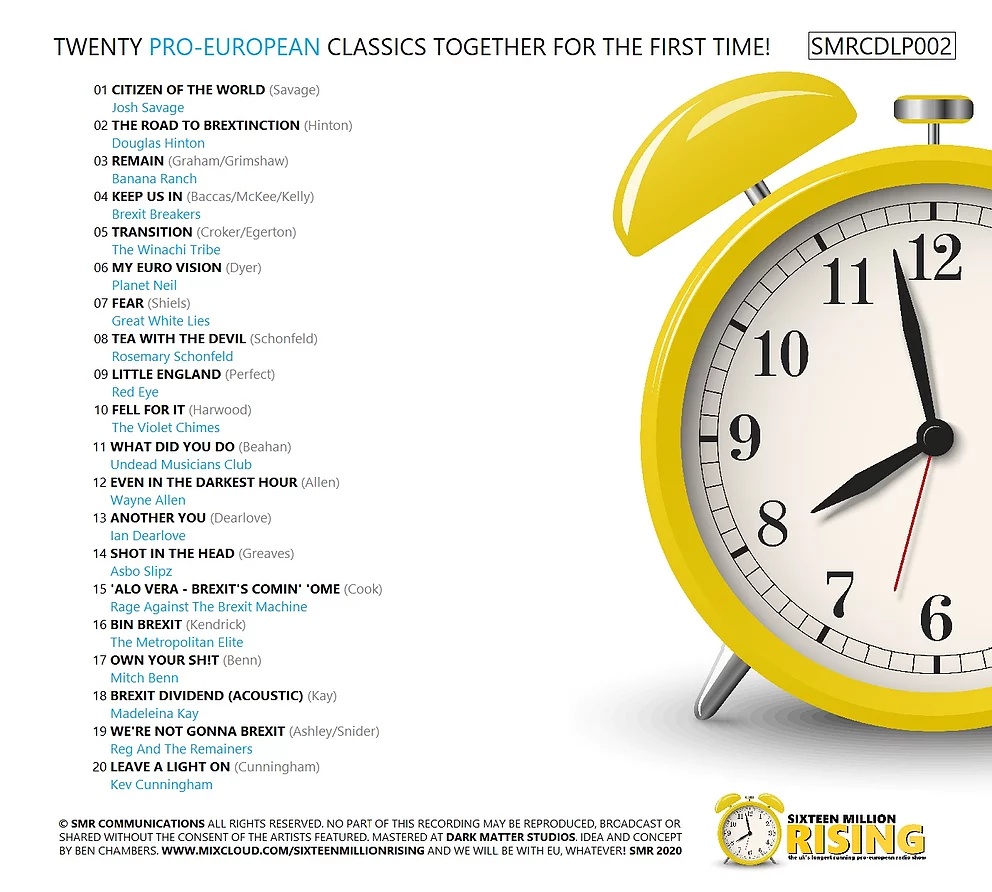It is up to us
Last week I talked about the need to be realistic and not to chase our own Remain/Rejoin version of sunlit uplands complete with the attendant rainbow coloured unicorns. This week I thought I would address one of the two keys tasks that we have to achieve in order to fulfil our goal of reclaiming our rightful place in the European Union.
That task is to persuade the political establishment in Westminster that we need another referendum, something which is very topical given Kier Starmer’s comments earlier this week about not revisiting the past.
Starmer’s comments show that we cannot just assume that such a referendum will be forthcoming if Labour were to gain the keys to Number 10 in 2024 despite the fact that we repeatedly hear that Starmer himself is pro-European and that the Labour Party membership is overwhelmingly in favour of our EU membership.
The situation within the Liberal Democrats may well be better, but it is still concerning from our point of view. Motions have been passed at both the recent Spring conference and at last year’s Autumn conference that confirm a policy of seeking EU membership. But for some reason the party leadership seems most reluctant to say anything that is even close to being unambiguously in favour of that EU membership. They seem to skirt around the subject without giving any form of clear commitment.
I am sure that I don’t need to say this, but even though until very recently the majority of Tory MP’s supported EU membership, the situation within the Tory party currently appears to be beyond hope from our perspective. It is difficult to see how any support for our cause would be forthcoming from within the ranks of the Tory party at present given that many of the most prominent pro-Europeans such as Michael Heseltine, Dominic Grieve and Ken Clarke were thrown out of the party for standing up to the likes of the ERG over Brexit.
Furthermore, I strongly suspect that many, if not most pro-Europeans have subsequently left the Tory party, especially as Aaron banks and Leave.EU have been openly boasting for some time about how they have infiltrated the Tory party and orchestrated the deselection of pro-European Tory MPs. The Tory party is presently firmly in the grip of the far right.
Given these circumstances within the Tory party there therefore seems to be just two possible viable scenarios where we might be able to secure a further EU membership referendum following the next general election, but both scenarios require action from us.
The first scenario is for the Labour Party to win the next election with a commitment in its manifesto for another referendum. That would require us to put forward a motion to a Labour Party conference placing that commitment onto their agenda, something that would no doubt be opposed by many in the Labour Party.
The second scenario would be for a hung parliament where the party or parties holding the balance of power insist on a further EU membership referendum as part of some form of deal to govern the country. Whilst that insistence could come from the SNP, they would understandably be more interested in a further referendum on Scottish independence. That insistence would therefore need to come from the Liberal Democrats if we wanted to be reasonably certain that a further referendum would come about. However, given the current ambiguity and apparent reluctance to openly commit to Rejoining, that insistence would need to be formalised as party policy via a motion put forward by us to a Liberal Democrat party conference. Again, that would no doubt be opposed by many.
In either scenario we therefore need to do two things. Firstly, we need to build up the pro-European community within both the Labour Party and the Liberal Democrats, and secondly, we need to persuade both parties to pass our motions.
We have made a start on both these issues. Our Labour and Liberal Democrat political sub-groups are active and growing. But we need them to be far bigger and far more active within both parties.
Earlier today I ran a poll in our main Facebook group. Of the 1250 individuals who took part in the poll only 400 indicated that they were members of political parties, and of those, only 100 were active within those parties.
We need to improve both ratios if we are to succeed. I would therefore urge everyone reading this to consider joining a political party and becoming active in that party to help us achieve that second referendum.
We also need to start presenting arguments for why we think there should be another referendum.
Those arguments need to convince both the politicians of the need for another referendum and also the wider electorate. We also need to carefully consider what those arguments should be. Any arguments we put forward must avoid the charge that we just want another ‘go’ because we ‘lost’ the argument the first-time round. Such arguments are easy for our opposition to counter and for wider electorate to ignore.
We therefore need to put forward a substantial reason for insisting upon a further referendum, and that reason needs to focus around the legitimacy of the events of 2016 as our opponents will struggle to counter them, and the wider electorate will find it increasingly difficult to ignore them, as long as were are consistent and persistent.
Whilst we have started building these arguments, the survey that we started earlier this week has already demonstrated how much work we still have to do. For example, the preliminary results show that around a third of our own politically active Remain/Rejoin community are unaware of the fact that the Leave Campaign broke data protection law in 2016 and around 15% are unaware that they broke electoral law.
If so many members of our own politically active community are unaware of such issues, the lack of awareness amongst the wider electorate will be considerable.
We have to change that and we have to change the policy of both the Labour Party and the Liberal Democrats. Starmer’s remarks earlier this week showed beyond doubt that there is no cavalry coming over the hill to rescue us.
It is up to us.








